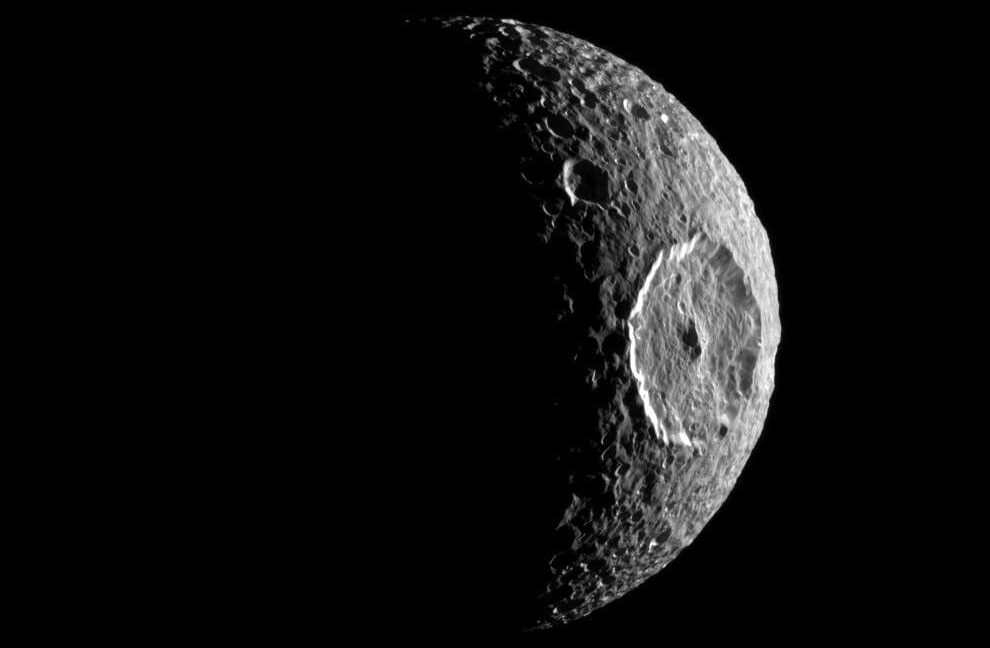
That can have significant consequences on the stresses experienced by the icy shells of these moons. Water is considerably more dense than ice. So, as a moon’s ocean freezes up, its interior will expand, creating outward forces that press against the gravity holding the moon together. The potential of this transition to shape the surface geology of a number of moons, including Europa and Enceladus, has already been explored. So, the researchers behind the new work decided to look at the opposite issue: what happens when the interior starts to melt?
Rather than focus on a specific moon, the team did a general model of an ice-covered ocean. This model treated the ice shell as an elastic surface, meaning it wouldn’t just snap, and placed viscous ice below that. Further down, there was a liquid ocean and eventually a rocky core. As the ice melted and the ocean expanded, the researchers tracked the stresses on the ice shell and the changes in pressure that occurred at the ice-ocean interface. They also tracked the spread of thermal energy through the ice shell.
Pressure drop
Obviously, there are limits to how much the outer shell can flex to accommodate the shrinking of the inner portions of the moon that are melting. This creates a low-pressure area under the shell. The consequences of this depend on the moon’s size. For larger moons—and this includes most of the moons the team looked at, including Europa—there were two options. For some, gravity is sufficiently strong to keep the pressure at a point where the water at the interface remains liquid. In others, the gravity was enough to cause even an elastic surface to fail, leading to surface collapse.
For smaller moons, however, this doesn’t work out; the pressure gets low enough that water will boil even at the ambient temperatures (just above the freezing point of water). In addition, the low pressure will likely cause any gases dissolved in the water to be released. The result is that gas bubbles should form at the ice-water interface. “Boiling is possible on these bodies—and not others—because they are small and have a relatively low gravitational acceleration,” the researchers conclude. “Consequently, less ocean underpressure is needed to counterbalance the [crustal] pressure.”
Source link
#Formation #oceans #icy #moons #waters #boil






























